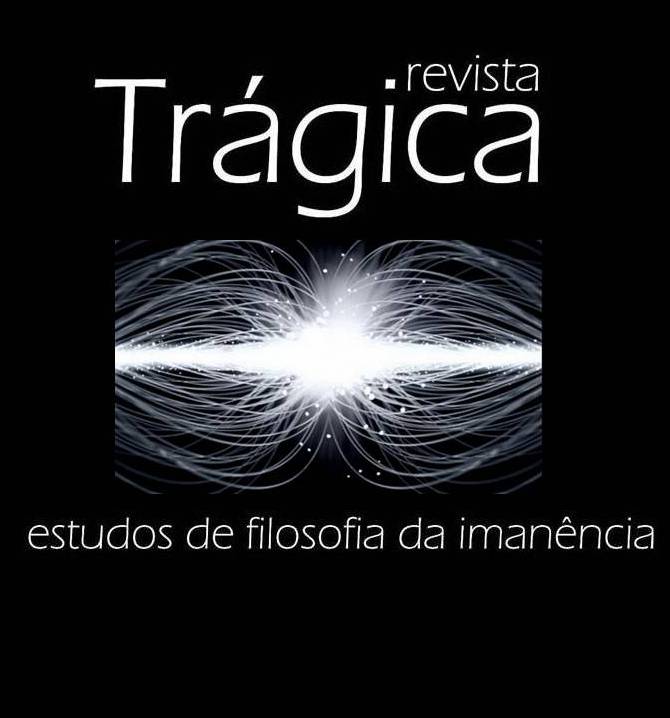Pragmatismo do disforme no Design
DOI:
https://doi.org/10.59488/tragica.v9i3.26876Keywords:
Nietzsche, TrágicoAbstract
Para Gilles Deleuze, o conceito de estilo não é uma forma que se aplica posteriormente a uma matéria para dar-lhe determinada qualidade estética ou ornamental. Estilo, em Deleuze, refere-se ao próprio processo produtivo de signos. Neste artigo, propõe-se assumir o estilo em Deleuze para pensar o design, do ponto de vista metodológico e ontológico, que está compenetrado em processos criativos. O estilo, então, está associado a uma pragmática, e não pode funcionar senão no interior de práticas concretas. Em vez de pensar o designer como aquele que dota um mundo sem design de formas, o caso aqui é abandonar o modelo hilemórfico, que cria uma hierarquia entre forma e matéria, para desenvolver um design em processo de interferências mútuas com o campo não-formalizado.
For Gilles Deleuze, the concept of style isn´t a form to be enforced a posteriori to a preexistent matter, in order to give it a certain aesthetical or ornamental quality. Within Deleuze, style refers to the signs’ production process itself. In this paper, Deleuze´s concept of style is adopted to think design, in onthological and methodological perspective, directly interpenetrated in creative processes. The style, thus, is related to a pragmatics and can not work other than within concrete practises. Rather than thinking the designer as those who gives forms to a designless world, here the idea is leaving behind hilemorphical model, that forges an hierarchy between form and matter, in order to develop a design in constant mutual interferences with a nonformalized field.
Downloads
Downloads
Published
Issue
Section
License
Authors retain the copyright and grant the journal the right of first publication, with the work simultaneously licensed under the Creative Commons Attribution 4.0 International (CC BY) license. This license allows third parties to remix, adapt, and create from the published work, attributing authorship and initial publication in this journal. Authors are authorized to assume additional contracts separately, for non-exclusive distribution of the version of the work published in this journal (e.g. publishing in an institutional repository, on a personal website, publishing a translation, or as a book chapter), with recognition of authorship and initial publication in this journal.

















